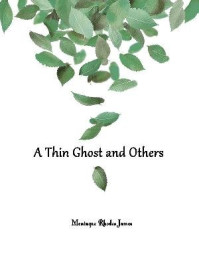





While Ida's manner at the breakfast-table was quiet and self-possessed, she still maintained the same distant bearing which had been characteristic the evening before. It was evident to Van Berg, however, that pride, wounded vanity, and resentment were no longer the motives for the seclusion in which she sought to remain, even while under the eyes of others. It was the natural shrinking of one who would hide weakness, trouble, and imperfection. It was the bearing of one who had been deeply humiliated, and who was conscious of a partial estrangement towards those having a knowledge of this humiliation. Thus far he could understand her; and in the proportion she was depressed and withdrew from social recognition and encouragement, his sympathy and respect were drawn out towards her.
"She is not trivial and superficial, as I supposed," he thought twenty times that morning. "There is not a sudden calm after the storm that has been raging, as would be the case were she in character like a shallow pool. Her manner now proves daily the largeness of the nature that has been so deeply moved, and which, like the agitated sea, regains its peace but slowly;" and the sagacious Van Berg, whose imagination was not under very good control began to react into the other extreme, and query whether Ida Mayhew's moral nature, now that it was aroused, was not her chief characteristic.
Meanwhile, the subject of his many-colored speculations had driven away in the low basket phaeton, having first explained briefly to her mother that she intended to spend the morning again with the two old people she had visited the previous day.
Stanton volunteered this amount of information to his friend, and there was much surmise and curiosity in their minds in regard to these "old people," and her motive in seeking them. But even Mrs. Mayhew had begun to realize that they must take Ida at her word and leave her to herself.
It was with something even more than hopefulness that Ida drew near to the garden again. She was alive; that fact, in contrast with what might have been, was like solid ground beneath her feet. Then, again, in the place of the cold, distant manner of the guests, after the departure of Sibley, she had already noticed friendly glances and an evident disposition to make amends. It also gave her not a little satisfaction that her cousin and the artist were experiencing such sincere compunctions, and were realizing the enormity of their offence. Ida was very human, and always would be. She was also a little elated over the fact that she had been able to tell the truth the evening before. The memory, however, that nestled most warmly in her heart was the assertion of Van Berg, "I NEED your forgiveness." "How much does that mean?" she asked herself again and again. "Does he really wish to be a friend, or is he only trying to smooth over matters and calm me down so he can leave me decorously, as after our hateful episode on the stage?"
Her wishes colored her thoughts. "He spoke too earnestly to mean so little," she said to herself, with a dreamy smile that Van Berg, as an artist merely, would have given much to see.
After all, perhaps one of the chief causes of her reviving spirits was in the fact she was young. She could not take a very sombre view of life that fresh summer morning, even in view of the past and the future, and her manner of greeting Mr. Eltinge and of telling her experiences since they parted suggested to him that she was gaining in self-complacency, earthly hope, and youthful spirits, rather than in the deep and lasting peace and moral strength which is built up from the Living Rock. She was finding relief from depression and suffering from causes as transient as they were superficial. Chief of all, she had not realized as he had supposed the shadow of the awful crime that was resting upon her, and the need of God's forgiveness. Almost unconsciously the old man, wise and experienced in spiritual life, sighed deeply as she finished her story.
Her quick ear caught the sigh, and her woman's intuition gathered from his face that the outlook did not seem so encouraging to him. Her heart began to sink, and she said earnestly:
"Mr. Eltinge, I've tried to be true; I want you to be faithful to me. Don't hide anything from me."
Yes, my child," he replied gravely, "you are sincere—you hide nothing. I think I understand you. I thank God he gave you strength last night to tell the truth under very trying circumstances, and you have greatly increased my respect for you that you did so. But, to use a little figurative language, if I were your doctor I might tell you that you don't realize how sick you are and have been. There have been some encouraging symptoms and circumstances, and your spirits and hope are reviving, and you are looking to these things rather than to him who taketh away the sin of the world. I tried to encourage you yesterday, my child, because I saw you were deeply depressed; and to discourage us is one of the chief aims of the Evil One. I do not wish to discourage you to-day—far from it—but I wish to realize that only the forgiveness and healing touch of the Son of God are equal to your need.
"My child," he continued, with a solemnity that made her grow very pale, "suppose I should take you to a room in the house there, show you a fair girl with eyes that should look for her duty in life closed forever, and the hands that should faithfully and bravely do it paralyzed in death. Suppose I should tell you that I had given her a poisonous drug the night before, what would I be?"
"A murderer," whispered the girl with eyes dilated with fear and horror.
"Yes," said the old man, shaking his head sadly; "I would have destroyed a life that God had given, and destroyed endless chances for happiness and usefulness, and sent a poor soul to judgement, perhaps unforgiven and unprepared. My child, it cuts me to the heart to pain you so, but the physician's probe must go to the depth of the wound. It is no kindness to the patient to put on a soothing surface application and leave death to rankle in the blood. We have no reason to believe that in the eye of God he that destroys himself is any the less guilty than he that kills another, and even in the judgment of man it's a cowardly flight from misfortunes that should be triumphed over with courage and patience, or endured with fortitude and resignation. Mark my words, it is only a flight, not an escape, for every evil you sought to shun would have been intensified and rendered eternal. Now, the simple truth is, we hold our own lives in trust from God, to be used according to his will, and we have no more right to destroy the life he entrusts to us than the life he gives to others."
Ida had buried her face in her hands and was trembling violently.
"I did not realize it before," she murmured in a low, shuddering tone. "Oh, what shall I do? What shall I do? Why doesn't the earth open and swallow me up?"
The old man came to her side again, and placing his right hand gently on her bowed head and holding a Bible in his left, continued in grave by very gentle tones:
"Take this Book, my child; it will tell you what to do. It will tell you that merciful and all-powerful arms are open to receive you, and not a hopeless grave. The Son of God has said to the heavy laden, 'Come unto me,' and 'whosoever cometh I will in nowise cast out.' Heaven is full, my child, of just such guilty souls as yours, but it was HE who saved them. It was His precious blood that washed them whiter than snow. When you seek for forgiveness and healing at His feet all will be well, but not till then, and not elsewhere."
"O, Mr. Eltinge," she sobbed, "you have pierced my heart as with a sword."
"I have, indeed, my poor child—with the sword of truth; and what's more, I can't heal the wound I've made."
"What shall I do? oh, what shall I do?" and she fairly writhed in the agony of her remorse.
"'Behold the Lamb of God, that taketh away the sin of the world,'" he said gently but firmly, and his strong faith and the words of Holy Writ were like a rock, at which, from out of the overwhelming torrent of her remorseful despair, she grasped as her one chance, her one hope.
Lifting her streaming eyes to heaven, and clasping her hands, she cried passionately:
"O Christ, hope of the sinful, if there is mercy for such as I, forgive me, for my crime is like a falling mountain!"
A moment later she sprang up and put her arms around the old man's neck.
"My friend, my more than father!" she sobbed, "I think—I almost believe God has heard me. It seems as if I had escaped from death, and—and—my heart was breaking; but now—oh, it's all a heavenly mystery!"
"Yes," replied Mr. Eltinge brokenly, and with answering emotion, "it is a heavenly mystery. 'Not by might, nor by power, but by my Spirit, saith the Lord.'"
Ida could never forget the remaining hours which she spent that day in the old garden. it was then and there that she experienced the sensations of those entering a new spiritual life and a new world; and with some, these first impressions are very vivid; and with some, these first impressions are very vivid.
It was according to nature that it should be so in the instance of Ida Mayhew, for she was simple, positive, and warm in her feelings, rather than cold and complex. But she was sane, and abounded in the homely common sense which enabled her to understand herself and those about her. She formed fairly correct estimates of all whom she had met, and with the same simple directness she began to recognize the character of the Divine Man that Mr. Eltinge and the Bible they read together presented.
No earthly casuistry could ever lead her to doubt that he had heard her prayer that morning. She might reply simply to all cavil and questioning:
"I know he heard and answered me, and if I do not know this to be true, I cannot know anything to be true;" for never before had her consciousness made anything so distinct and real.
To say that she and multitudes of others are mistaken, is begging the whole question. It is baldly taking the ground of denial of everything outside of personal understanding and knowledge. The skepticism of very many would blot out the greater part of science, history, and geography. The facts of Christian experience and Christian testimony are as truly facts as those which are discovered by people who are hostile or indifferent to the Bible.
The broad, liberal man is he who accepts all truth and humbly waits till the fuller wisdom of coming ages reconciles what is now apparently conflicting. The bigot is he who shuts his eyes to truth he does not like, or does not understand; and he is as apt to be a scientist as the man who has learned that the God who made him can also speak to him, through his inspired word and all-pervading Spirit.
We are surrounded by earthly mysteries which the wisest cannot solve, and some of them are very sad and dark. Why should there not be, as Ida said, a heavenly mystery?
After all, it is a question of fact. The Christ of the New Testament offers to give peace and spiritual healing. Does he keep his word? We say yes, on the broad ground of human experience and human testimony—the ground on which is built the greater part of human knowledge.
If this be true, what a reproach is contained in the words of our
Lord: "Ye will not come unto me that ye might have life"!


